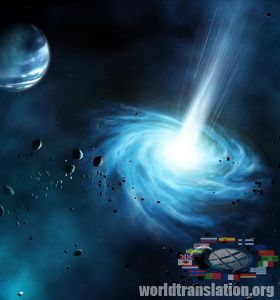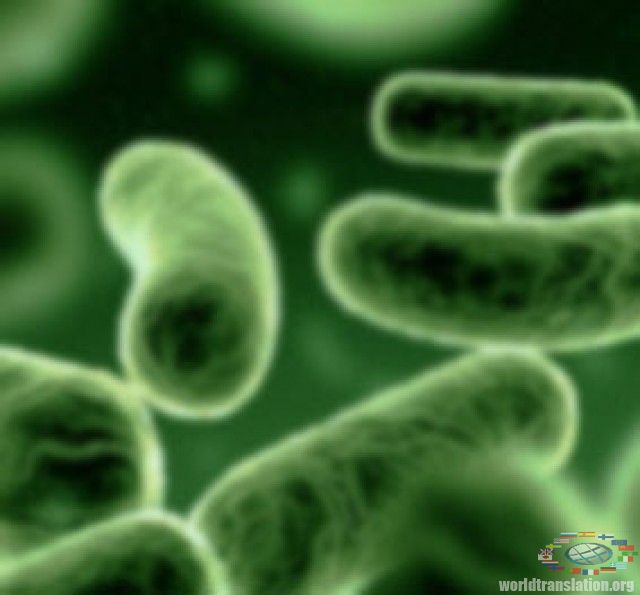Life origin

150 years after the publication of Charles Darwin's Origin of Species, remains a question which the great scientist was not able to answer. How the first living being, which gave the rise to the origin of species on Earth was formed? In his work the English biologist escapes of answer, possibly due to lack of sufficient evidences and, perhaps because of his religious ideas.  1.5 century has already passed but still there is no convincing arguments in favor of any of this theories, but there are two opposite directions, supporters of one of which say that the primary form of life was emerged on the Earth, when the planet was still quite young. Others defend the theory of panspermia, and does not have a doubts, that life came from the space. According to the astronomers of Cardiff University (UK), the probability that life originated in outer space, is 28 times higher than the probability of its occurrence in the Earth.
1.5 century has already passed but still there is no convincing arguments in favor of any of this theories, but there are two opposite directions, supporters of one of which say that the primary form of life was emerged on the Earth, when the planet was still quite young. Others defend the theory of panspermia, and does not have a doubts, that life came from the space. According to the astronomers of Cardiff University (UK), the probability that life originated in outer space, is 28 times higher than the probability of its occurrence in the Earth.  In their opinion, the universe is filled with cellular forms of life, located inside the comet, as in peculiar trap. About 38 billion years ago, one of these comets shattered into pieces, after the facing with the Earth's atmosphere. Although most of the bacteria have died then, their smaller part survived this long "journey" and marked the beginning of life on the Earth. According to supporters of the theory of panspermia bacteria, "floating" in space dust of the Universe are another argument in favor of extraterrestrial origin of life. This hypothesis is supported by the results of studies, that have shown that bacterias can withstand the extreme conditions similar to those in which they are located when they making the interstellar "flights."
In their opinion, the universe is filled with cellular forms of life, located inside the comet, as in peculiar trap. About 38 billion years ago, one of these comets shattered into pieces, after the facing with the Earth's atmosphere. Although most of the bacteria have died then, their smaller part survived this long "journey" and marked the beginning of life on the Earth. According to supporters of the theory of panspermia bacteria, "floating" in space dust of the Universe are another argument in favor of extraterrestrial origin of life. This hypothesis is supported by the results of studies, that have shown that bacterias can withstand the extreme conditions similar to those in which they are located when they making the interstellar "flights." The researcher of Autonomous University of Madrid, Ricardo Amils says: "A few years ago, starting a conversation about panspermia could lead to the fact that your colleagues would stop to say hello to you". Then he adds: "Today, no one smiles when you raise the issue". Amils studies the behavior of the bacteria, which are living in the Red River at Huelva (Spain). Environment in which they live is so huge, that it serves a great base for studies about the possible existence of primitive life on Mars. According to the expert, the life - is the phenomenon that is much more stable and enduring than was previously believed, and numerous studies have shown that some microorganisms can survive without problems in their space "travels".
The researcher of Autonomous University of Madrid, Ricardo Amils says: "A few years ago, starting a conversation about panspermia could lead to the fact that your colleagues would stop to say hello to you". Then he adds: "Today, no one smiles when you raise the issue". Amils studies the behavior of the bacteria, which are living in the Red River at Huelva (Spain). Environment in which they live is so huge, that it serves a great base for studies about the possible existence of primitive life on Mars. According to the expert, the life - is the phenomenon that is much more stable and enduring than was previously believed, and numerous studies have shown that some microorganisms can survive without problems in their space "travels".  The disadvantage of the theory of panspermia is that it does not explain how the first bacterias, which came to the Earth were formed.
The disadvantage of the theory of panspermia is that it does not explain how the first bacterias, which came to the Earth were formed.
Many experts believe that the first spark of life flashed just in the Earth. This was exactly what Darwin presented as a hypothesis in a letter to his friend Joseph Dalton Hooker in 1871. He briefly described him hypothetical little warm pool with ammonia and other chemical substances, among which light or electricity could generate a reaction that leads to the appearance of the first protein. In turn, these compounds, could form other, more complicated forms, and so on until the formation of the primitive protocells. Jack Szostak - a researcher of Harvard University (USA) says: " Darwin was right about a small pool, because, unlike the ocean, these small areas of water can dry, store chemicals, change the temperature and be subjected to other, necessary for life changes". His laboratory is one of the most advanced in the reproduction of chemical reactions that could lead to the first cell. Also Jack Szostak says: "But no one can guarantee that the primitive cell, created in the laboratory, will be the same as that one, which appeared on the Earth about 3.5 billion years ago. We can never know with precision what has actually happened".
Jack Szostak - a researcher of Harvard University (USA) says: " Darwin was right about a small pool, because, unlike the ocean, these small areas of water can dry, store chemicals, change the temperature and be subjected to other, necessary for life changes". His laboratory is one of the most advanced in the reproduction of chemical reactions that could lead to the first cell. Also Jack Szostak says: "But no one can guarantee that the primitive cell, created in the laboratory, will be the same as that one, which appeared on the Earth about 3.5 billion years ago. We can never know with precision what has actually happened".